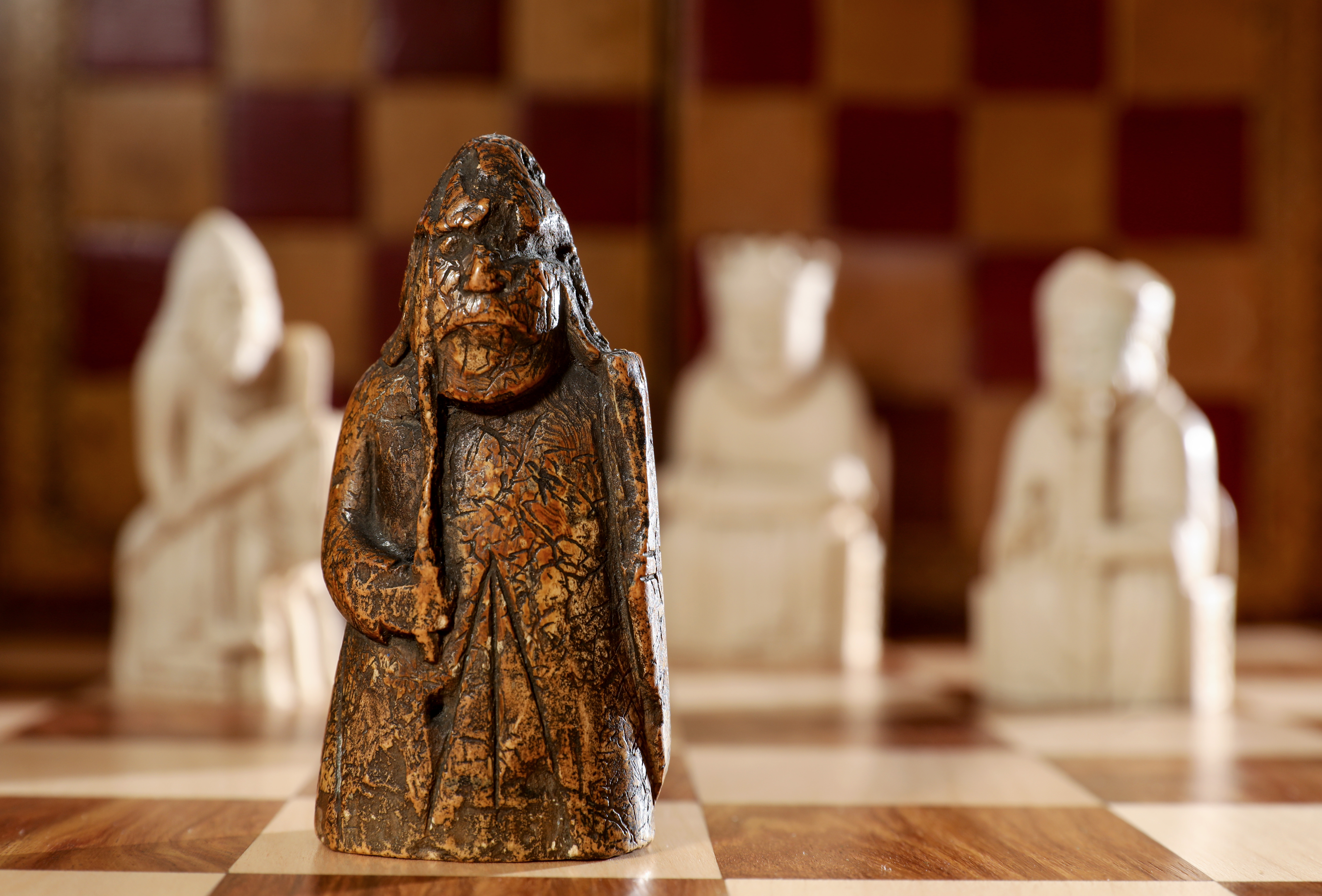
A medieval chess piece from the famed Lewis Chessman trove, the most revered collection of chess pieces in the world, first discovered on the Isle of Lewis in Scotland’s Outer Hebrides in 1831, is heading to auction at Sotheby’s London next month.
An Edinburgh family had kept the long-lost ivory carving stored in a drawer in their home for decades, unaware of its significance. A grandfather in the family, which has chosen to remain anonymous, was an antiques dealer who bought the historic chessman for just £5 ($6) in 1964. Today, it could be worth £1 million ($1.26 million).
Alexander Kader, Sotheby’s co-worldwide head of European sculpture and works of art, told the BBC that his “jaw dropped” when he saw the figure of a warrior with a helmet, shield, sword, and missing eye.
“They brought it in for assessment,” he said. “That happens every day. Our doors are open for free valuations. We get called down to the counter and have no idea what we are going to see. More often than not, it’s not worth very much.”
A newly discovered Lewis Chessman at Sotheby’s London. Photo courtesy of Sotheby’s.
This was not one of those times. Considered a symbol of European civilization, the Lewis Chessmen set has 93 pieces, 82 of which are housed at the British Museum in London and 11 of which are at the National Museum of Scotland. The original discovery found nearly four complete sets, but five pieces were missing from the trove; one knight and four warders (the forerunner to the modern-day rook).
The family was shocked when they learned that their chessman was one of the long-lost pieces, the first to be found since the initial discovery in 1831. The 12th- or 13th-century walrus ivory chess pieces are believed to have been made in Trondheim, Norway.
A newly discovered Lewis Chessman at Sotheby’s London. Photo courtesy of Sotheby’s.
“This is one of the most exciting and personal rediscoveries to have been made during my career,” said Kader in a statement. “Today all the chessmen are a pale ivory color, but the new Lewis Warder’s dark tone clearly has the potential to offer valuable and fresh insight into how other Lewis chessmen may have looked in the past.”
The chess piece will hit the auction block during the “Old Master Sculpture & Works of Art” sale on July 2. The low estimate is £600,000 ($758,000). It marks the first time a Lewis Chessman will appear at auction.